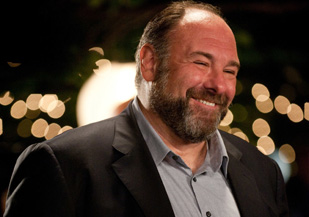The 400-Word Review: Enough Said
By Sean Collier
September 30, 2013
BoxOfficeProphets.com

His talents are matched, in a pleasant surprise, by Julia Louis-Dreyfus in the lead role. Louis-Dreyfus’ considerable comedic talents are well-established; she is the only woman to win three acting Emmys for three different roles, all certainly deserved. But the dramatic range on display in Enough Said is something much different than Elaine Benes or Selina Meyer; it’s heartening to see that Louis-Dreyfus is still very much in the prime of her career.
The story is less a yarn and more a set of circumstances: Eva (Louis-Dreyfus) is a divorced masseuse preparing to send her only child (Tracey Fairaway) to college. She’s guarded, set in her ways and mostly ambition-free when she meets Albert (Gandolfini), who has a divorce and a college-bound daughter (Eve Hewson) of his own.
The courtship is tentative but charming; writer/director Nicole Holofcener has a knack for characters and relationships, if not for dialogue. It’s hard not to be taken in by the romance at hand — and by the friendships that Eva fosters with a client (Catherine Keener) and her daughter’s best friend (Tavi Gevinson), even as other parts of her life grow strained.
The second act swings on an unfortunate, sitcom-style reveal that drives the remainder of the action, and not pleasantly. I won’t reveal it here, but the twist defines every scene that follows and robs both the movie and Eva of considerable charm. It’s the exact sort of plot device that Holofcener avoided in her superior 2006 feature, Friends With Money, and it feels disrespectful to the talents involved here to reduce them to a clichéd story. (Furthermore, scenes that involve discussions of Albert’s weight and health are hard to watch, given the circumstances of the actor’s death. They could’ve easily been cut.)
The story prevents Enough Said from fully satisfying, in spite of a strong start. Its performers do provide enough momentum to make it a worthwhile endeavor; hard though it may be, Gandolfini fans must see this careful and lovely performance.
Sean Collier is the Associate Editor of Pittsburgh Magazine and a member of the Broadcast Film Critics Association. Read more from Sean at pittsburghmagazine.com/afterdark